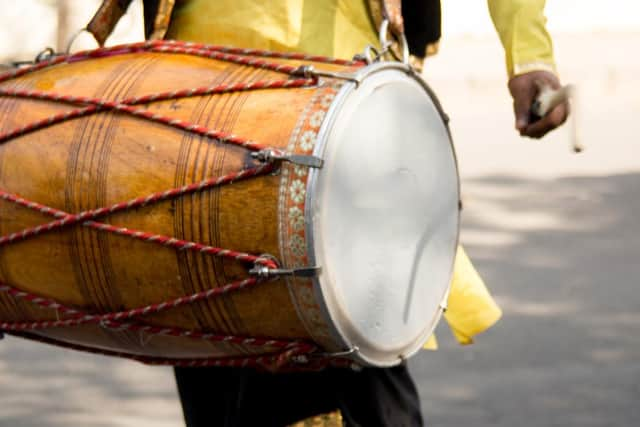Vaisakhi 2023: when is the Sikh and Hindu festival in the UK, the story behind it - and how is it celebrated?
and live on Freeview channel 276
This week sees the holy celebration of Vaisakhi begin, a festival that is observed by millions of people all around the globe. The holiday is celebrated by both Hindus and Sikhs, albeit in slightly different ways, and for slightly different reasons.
In Hinduism, Vaisakhi marks the beginning of Hindu solar New Year, and the first day of the month of Vaisakha, which roughly corresponds to April/May in the Gregorian Calendar commonly used in western cultures.
Advertisement
Hide AdAdvertisement
Hide AdIn Sikhism, Vaisakhi commemorates the creation in 1699 of the Khalsa, the collective body of initiated Sikhs, by Guru Gobind Singh.
Here is everything you need to know about it.
What is Vaisakhi?
One of the most colourful events in the Sikh calendar, Vaisakhi is celebrated slightly differently depending on location, with Sikhs in varying regions of India taking different approaches to marking the festival.
Like in Hinduism, many observe the day as a harvest festival of sorts, and Vaisakhi traditionally coincides with the first harvesting of crops for the year. Fairs are held in many places to celebrate the formation of the Khalsa, and many people dance the folk dance Bhangra, traditionally a harvest dance.
Other regions may celebrate by visiting friends and family, or wearing special clothes and preparing special food to mark the festival, while the Nihang order of Sikhs engage in martial arts and displays of horsemanship. In the UK, Nagar Kirtans are usually held, processions that involve the singing of holy hymns throughout a community.


How is it celebrated in Hinduism?
Advertisement
Hide AdAdvertisement
Hide AdIn layman’s terms, Vaisakhi is the New Year’s Day of Hinduism, although such an occasion is not marked on the same date by all sects of the religion. For some, New Year festivities coincide with the five-day Diwali festival which takes place much later in the year.
Vaisakhi also serves as a harvest festival, marking a time of year where the harvest is complete and the crops ready to sell – a time of plenty for farmers. Fairs and special thanksgiving prayers are common in the Hindu tradition, and ritual bathing in sacred Indian rivers like the Ganges, Jhelum and Kaveri is a popular way of marking the celebration.
Hindus also visit their local temples, where they may meet friends and party over festive foods.
When is it in 2023?
In Sikhism, Vaisakhi is usually celebrated on 13 or 14 April every year.In 2023, for both Sikhs and Hindus it falls on Thursday 14 April.
Who else celebrates it?
Advertisement
Hide AdAdvertisement
Hide AdNot only is Vaisakhi celebrated by Hindus and Sikhs, but during the early 20th century, Vaisakhi was also a secular harvest festival for Muslims and Christians.
In northern India especially, many Christians still participate in Vaisakhi celebrations. The new year also falls on or about the same day every year for many Buddhist communities in parts of South and Southeast Asia, and so they too may celebrate a version of the festival.